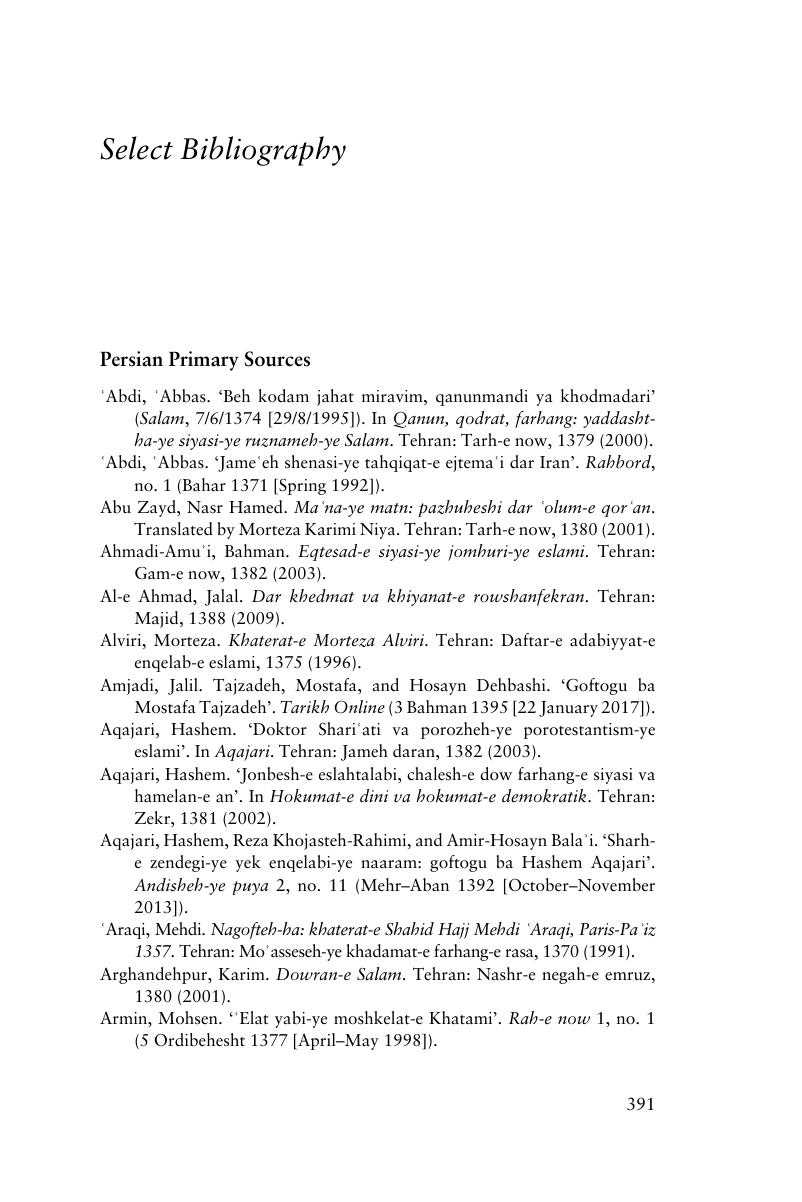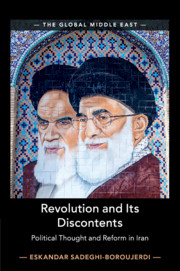Book contents
- Revolution and Its Discontents
- The Global Middle East
- Revolution and Its Discontents
- Copyright page
- Dedication
- Contents
- Acknowledgements
- Note on Sources and Transliteration
- Abbreviations
- Introduction
- 1 Religious Intellectuals, Reform, and the Struggle for Hegemony
- 2 Constructing Behesht-e Jahan: Islam, the Clergy, and the State
- 3 Political Genealogies of Reform: The Rowshanfekran-e Dini and the Islamic Left
- 4 Revolution and Its Discontents: Ideology and the Death of Utopia
- 5 Free Faith, Democratic Governance, and the ‘Official Reading’ of Religion
- 6 Khatami, the 2nd Khordad Front, and the Pedagogics of Pluralism
- 7 Saʿid Hajjariyan and Reformist Strategy: Sovereign Disenchantment and the Politics of Participation
- Conclusion
- Appendix
- Glossary
- Select Bibliography
- Index
- References
Select Bibliography
Published online by Cambridge University Press: 18 February 2019
- Revolution and Its Discontents
- The Global Middle East
- Revolution and Its Discontents
- Copyright page
- Dedication
- Contents
- Acknowledgements
- Note on Sources and Transliteration
- Abbreviations
- Introduction
- 1 Religious Intellectuals, Reform, and the Struggle for Hegemony
- 2 Constructing Behesht-e Jahan: Islam, the Clergy, and the State
- 3 Political Genealogies of Reform: The Rowshanfekran-e Dini and the Islamic Left
- 4 Revolution and Its Discontents: Ideology and the Death of Utopia
- 5 Free Faith, Democratic Governance, and the ‘Official Reading’ of Religion
- 6 Khatami, the 2nd Khordad Front, and the Pedagogics of Pluralism
- 7 Saʿid Hajjariyan and Reformist Strategy: Sovereign Disenchantment and the Politics of Participation
- Conclusion
- Appendix
- Glossary
- Select Bibliography
- Index
- References
Summary

- Type
- Chapter
- Information
- Revolution and its DiscontentsPolitical Thought and Reform in Iran, pp. 391 - 432Publisher: Cambridge University PressPrint publication year: 2019



